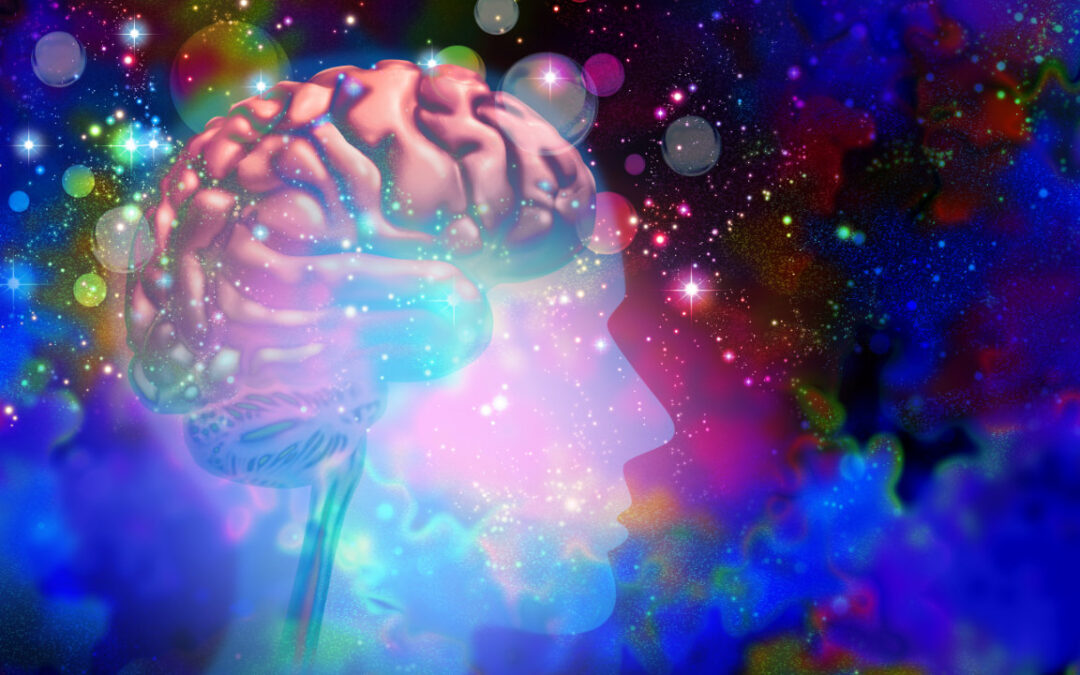If you’ve never had a psychedelic experience you might be curious about how it feels or what psychedelics actually do.
I’ve put together a list of what psychedelics are and what they are not!
There’s a lot of questionable information floating around the internet regarding psychedelics. My number one priority is harm reduction and part of that is knowing what you’re getting yourself into. Even though it’s impossible to understand what a psychedelic experience is like until you have one, here are 5 things psychedelics ARE and 5 things they are NOT.
Psychedelics ARE:
1. A doorway to unconscious material:
Psychedelics take you out of the ‘ego state’ (your everyday waking state where the conscious mind is in control) and allow you access to the subconscious. The subconscious is like a vault that contains things that are hidden from your conscious awareness.
This can include:
- Repressed memories
- Traumatic events
- Denied or supressed feelings
- Your hidden power
- Insights and inner wisdom
2. Able to shift your perspective:
It’s very normal to come out of a psychedelic experience with a different perspective than you had before. Some common shifts that people experience include:
- Realising you’re unhappy in a relationship
- Feeling less connected to some friends
- Changes in diet
- Changes in cravings or habits
- Feeling called to change your job or career
- Feeling a new sense of connection to nature
- Feeling increased empathy
- Being more attuned to your inner world and emotions
3. Able to induce mystical experiences
This is common but not a guarantee. People often feel a sense of ‘interconnectedness’ or ‘oneness’ during a psychedelic experience which can lead to new beliefs or spiritual curiosity.
4. Sometimes scary
Being in a non-ordinary state of consciousness for the first time can feel scary. It’s a completely new experience and the mind can be reluctant to give up control. This can show up as
- feelings of panic or anxiety
- physical sensations such as tightness in the chest
- feeling like you’ve made a mistake or like something bad is going to happen
- Feeling like you’re going to go crazy
This is all totally normal! The best way to handle these feelings is adequate preparation. Working with a psychedelic coach or therapist will help you to learn techniques and tools that you can use when you find yourself in a challenging moment.
5. Able to repair and create new connections in the brain
This can be part of the therapeutic effect which is beneficial to those suffering with PTSD or depression, as they tend to have impaired neurogenesis and neuroplasticity. This also allows a window following a psychedelic experience where the brain is more ‘plastic’ and you’re able to shift behaviours and habits more easily. It was once thought that the brain cells and their connections are mostly fixed by adulthood. Psychedelic studies are revealing that it is in fact possible to make new connections and that the brain is actually more flexible than previously thought.
What psychedelics are NOT
1. A cure-all
Psychedelics will not ‘heal’ you. They will reveal the parts of you that are hurting, traumatised, exiled or stuck and the rest is integration work. Psychedelic experiences are intrinsically healing, but the long-term shifts come from integration and consciously using your insights to create action-based changes in your life.
2. A replacement for therapy
Psychedelics work beautifully alongside therapy or coaching. They complement each other and you can use therapy to work through what comes up in your psychedelic experiences. It’s essential to have a therapist or coach who is experienced with psychedelics or at the very least psychedelic informed. It’s important to feel understood by your therapist and feel comfortable speaking freely about these experiences.
3. An escape from your problems
If you’re hoping to float off into a sea of bliss and forget about your earthy problems, you may be in for a shock. Although it’s possible to experience blissful and mystical states during psychedelic trips, we cannot choose where the journey will take us. Be prepared to be taken deeper into your issues by doing the preparation work with a certified coach or therapist.
4. A killer of the ego!
We hear the term ‘ego death’ a lot in the psychedelic community, but what is it and what does it mean? The ego is essentially what we know ourselves to be, from your name to your job to your opinions and thoughts. It is possible in psychedelic states to feel a ‘detachment’ from this part of the self, which leaves you experiencing a sense of pure consciousness. Imagine forgetting who you are and everything about yourself. You might think that you’d be left with nothing, but there is something else that remains. This experience is known as ‘ego death’. It really should be called ‘ego nap’ because it is not permanent, nor would you want it to be. This is not a state that we live in permanently, but it can be useful to experience and can create dramatic new perspectives. More about this in my story “my Ayahuasca death”.
5. 20 years of therapy in one night
This is a popular phrase that is often used to sell retreats or psychedelic ceremonies. Although you may glean some huge insights from a psychedelic journey, it’s up to you to take that information away and work with it. It takes intentional work to make meaning from these experiences and turn it into growth. This can look many different ways, but it usually happens over time and with conscious effort. This is not a straightforward process and I would recommend working with a practitioner to get the most ‘juice’ out of your psychedelic experiences.

